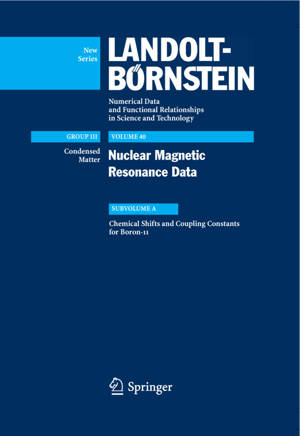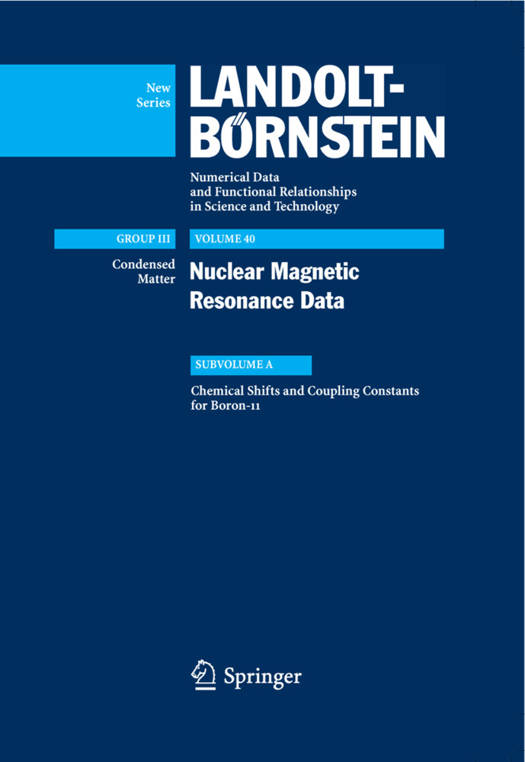
- Afhalen na 1 uur in een winkel met voorraad
- Gratis thuislevering in België vanaf € 30
- Ruim aanbod met 7 miljoen producten
- Afhalen na 1 uur in een winkel met voorraad
- Gratis thuislevering in België vanaf € 30
- Ruim aanbod met 7 miljoen producten
Chemical Shifts and Coupling Constants for Boron-11
Chemical Shifts and Coupling Constants for Boron-11
R T Pardasani, Pushpa PardasaniOmschrijving
Nuclear Magnetic Resonance (NMR) is based on the fact that certain nuclei exhibit a magnetic moment, oriented by a magnetic field, and absorb characteristic frequencies in the radiofrequency part of the spectrum. The spectral lines of the nuclei are highly influenced by the chemical environment, i.e. the structure and interaction of the molecules. NMR is now the leading technique and a powerful tool for the investigation of the structure and interaction of molecules. The present Landolt-Börnstein volume III/40A "Nuclear Magnetic Resonance Data, Chemical Shifts and Coupling Constants for Boron-11" appears as a supplement volume to Landolt-Börnstein's New Series Group III, Volume 35, Subvolume A. Included in this volume are simple boranes, boron macrocycles, dendrimers, and polymers.
Specificaties
Betrokkenen
- Auteur(s):
- Uitgeverij:
Inhoud
- Aantal bladzijden:
- 579
- Taal:
- Engels
- Reeks:
Eigenschappen
- Productcode (EAN):
- 9783642019937
- Verschijningsdatum:
- 20/08/2009
- Uitvoering:
- Hardcover
- Formaat:
- Genaaid
- Afmetingen:
- 193 mm x 270 mm

Alleen bij Standaard Boekhandel
Beoordelingen
We publiceren alleen reviews die voldoen aan de voorwaarden voor reviews. Bekijk onze voorwaarden voor reviews.











